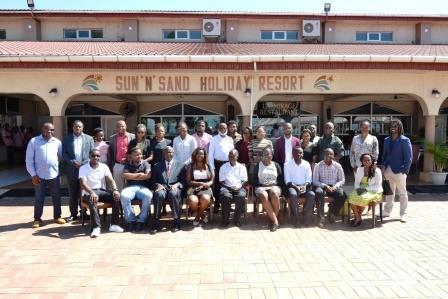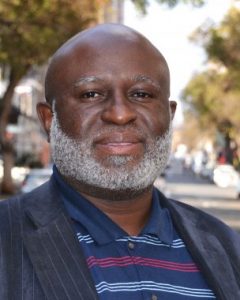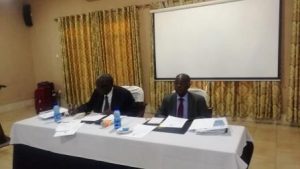
MANGOCHI, Malawi – Litigation is one strategy that can result in clarification of current vague abortion laws, which are perpetrating violation of women rights, a reproductive health champion has said.
Nyale Institute of Reproductive Rights executive director Godfrey Kangaude said this in eastern Malawi’s resort town of Mangochi on March 29 when he opened a two-day training on public interest litigation for lawyers.
Co-organised by the Women and Law in Southern Africa (WLSA) and Nyale Institute, with support from Center for Reproductive Rights (CRR) and Southern Africa Litigation Centre (SALC) the training was aimed at building the capacity of lawyers to undertake abortion litigation in Malawian Courts.
Kangaude told participants that despite the question of lawfulness of abortion being a legal question that impacts on women’s access to safe abortion in the public health system, it is a question that has never come before the courts for clarification.
The language of the abortion provisions in the Penal Code reflect the times and context of the 1900s in England and have never been interpreted for modern Malawi.
Kangaude expressed the view that the failure to bring the issue of abortion to the courts is not because abortion is ‘difficult’ to litigate, but rather is marginalised as a ‘feminine’ issue and is ignored everywhere including in the legal system.

The training was designed to engage lawyers to think creatively about taking up the issue of abortion in the courts in Malawi as one route of advocacy for reform of the abortion law.
On the first day of the training, a panel discussed the challenges that young girls who become pregnant as a result of sexual violation face, because when they seek abortion in the public health facilities, they are told by health providers that the official position of abortion in Malawi is that any abortion is illegal.
According to Kangaude, “this is rather one interpretation of the law, because legal scholars have interpreted that there is an exception where the life of the pregnant women is in danger. However, health providers cannot act on interpretation of legal scholars or activist lawyers, it needs the authority of the court to state the correct position of the law.”
The panel discussion showed why it was necessary that the issue of abortion should be taken to the courts. The courts could also be asked to determine whether the abortion provisions are in fact unconstitutional if measured up against constitutional norms and standards.
Apart from the panel, senior lawyers in private practice and academia made presentations on the substantive arguments, procedure and comparative jurisprudence that legal counsel could use in litigation on abortion. Participating legal counsel then spent the rest of the first day discussing possible scenarios that could be brought before to the attention of the court, and prepared and practiced oral arguments.
On the second day, a panel of judges was constituted by retired judges of Malawi’s Supreme Court of Appeal, and in a simulated court environment, legal counsel in three teams presented oral arguments on three scenarios; judicial review, civil suit, and constitutional challenge.
Following the moot court, the judges gave their views, and this was followed by a debriefing session.
At the close of the meeting, Kangaude thanked all participants including judges and partners representing the Coalition for the Prevention of Unsafe Abortion (COPUA) for taking part in the training.

He especially thanked legal counsel for their commitment and creativity in raising interesting arguments that could be advance the right to access safe abortion through the courts.
He expressed the hope that in the near future, legal counsel would respond to calls for public interest litigation when the opportunity presented itself.
Kangaude also thanked the CRR and SALC for sponsoring the meeting and participating as well as facilitating the capacity building exercise.
He asked for their continued support to undertake litigation on abortion in Malawi, and to continue supporting efforts of local organisations such as Nyale Institute and WLSA to advance and protect women’s rights using court advocacy.
Background
Malawi is the only country in southern Africa which is stuck with ancient provisions regulating access to abortion dating to 1930s.
The archaic colonial provisions in the Penal Code which Malawi uses to date were drafted in a manner that is not immediately transparent, and do not offer precise guidance as to what constitutes legal abortion.
The language of the outdated provisions reflects the medical knowledge of the 1800s in Europe and is out of touch with modern medical standards.
This is happening at the time that unsafe abortion continues to be a major public health challenge in Malawi.
A study conducted by the University of Malawi’s College of Medicine established that 141 000 women in 2015 induced abortion in Malawi, giving an abortion rate of 38 per 1000 women of reproductive age.
Out of the 141,000 women who induced abortions in 2015, over 53 600 women were treated for complications.
Currently, abortion‐related complications contribute to up to 18 percent of the maternal mortality ratio in Malawi.
In its report on the review of the abortion law currently in force, the Malawi Law Commission acknowledged that restrictive abortion law contributes to the problems associated with unsafe abortion, including serious complications such as loss of the uterus, permanent disability, and death, because it drives women and girls to seek clandestine abortions by unskilled providers.
The Law Commission has proposed a more liberal law to provide for expanded access to safe abortion but the problem is that the process is dilly-dallying and it is not known when the proposed legislation will be tabled in Parliament.
Commenting on the plans to some sections of the current Penal Code clarified by the courts, Centre for Solutions Journalism (CSJ) executive director Brian Ligomeka said the move was very welcome.
“The move is welcome because it is complimenting the advocacy for abortion law reform we are doing. The public interest litigation being pursued by WLSA Malawi and Nyale Institute emphasises on the need to clarify the current abortion law including the need to have guidelines in implementing the current law,” Ligomeka said.
He added: “While WLSA and Nyale Institute are preparing to go to court to have the current law clarified, the advocacy our organisation (CSJ) and others are doing involves lobbying for the enactment of the proposed Termination of Pregnancy Bill already drafted by the Malawi Law Commission. What it means is that if the courts clarify the current law, eligible women and girls will immediately start accessing safe abortion services as the finalisation of enactment of the proposed law is underway. Currently, women are unable to access safe abortion services because the current law is not only archaic but also vague, while the proposed abortion bill has not been tabled in Parliament.”
Ligomeka said positive policy changes on human rights issues can easily be achieved through the use of multiple strategies including litigation, media campaigns and advocacy, stakeholders’ and community outreach engagement.
“These strategies are complimentary and not contradictory. Those using litigation so that women can have an opportunity to access safe abortion even before draft law is enacted, and those of us using advocacy so that the proposed Termination of Pregnancy law is enacted, have a common purpose. Our common aim is to ensure that women and girls in Malawi access safe abortion services as part of enjoyment of comprehensive sexual and reproductive health and rights,” he said.
